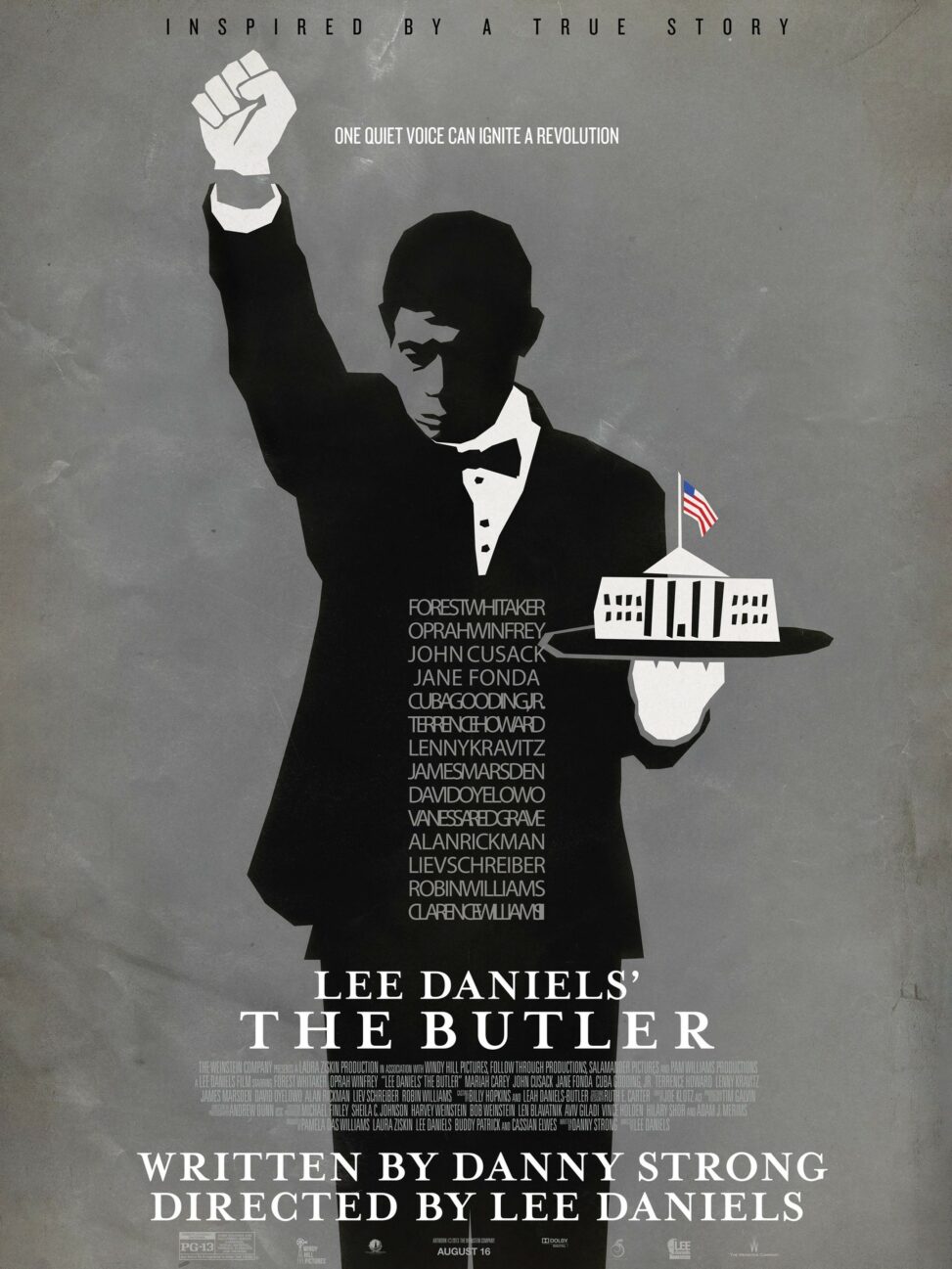The film ‘The Butler’, directed by Lee Daniels is a remarkable movie inspired by a true story, which does an extraordinary job at displaying historical events. The beginning of the story takes place around 1926, Macon Georgia. Cecil Gaines, who is a young boy at this time, works at a cotton plantation with his African American family. After an unfortunate event, Cecil loses his dad to a bullet in the head. Cecil, being so young, gets taken into a white woman’s home to work in the house instead of the field, training to be a servant. He then decided to leave the cotton fields and move to Washington D.C, although he quickly realizes life is much harder outside of the fields. This was a horrible time for African Americans, as they were facing such horrible and disgusting challenges of racism.
Overall, the picture in this film has a darker tone, as the film itself is also telling a darker story. After being caught trying to steal cake, he then receives a job working at the fancy Excelsior Hotel. Cecil does exceptionally well at this hotel and finds himself unknowingly talking to R.D Warner, whom of which oversaw operations for the entire white house. After receiving such excellent service, R.D Warner offers Cecil a job at the White House as a butler. Although it is pivotal for Cecil to receive that job, his Wife and two sons are also very important to the plot of the film. During the years around 1957, the Eisenhower Administration was in progress and Louis, Cecil’s eldest son, chose to attend Fisk University in Tennessee. Although this is just the beginning of Louis’s story as he chooses to fight for civil rights for a majority of the rest of the film.
Over the years, Cecil does an exceptional job as a butler in the white house, unfortunately, Louis seemed to always be embarrassed of this, allowing for the two to lose contact. A scene that stuck out to me was where it was mentioned to Louis, “your dad defies racial stereotypes with his work ethic by being so hard working and trustworthy, he is slowly tearing down the racial hatred.” After many different presidents, and little to no progress, there are more riots, groups like the Kkk forming, Louis and his group labeled “The Freedom Riders” highlights the generational divide between him and his father, as Cecil couldn’t understand this point of view towards fighting, as he was always trained to be quiet, obedient, and a servant. After years of being in and out of jail, Louis decides to run for congress after the passing of his younger brother serving in the war. Although Louis loses, Cecil decides to finally step down from his job after all the past years of asking for a promotion, and repatch his relationship with his last living son.
The ending concludes with Cecil walking down to a protest Louis attends for Nelson Mandela, and shortly after Barack Obama, which is pivotal to all their past struggles. The film was amazing to watch, and had many different camera movements such as tracking, slow push ins, and wide shots. There was also interesting edits such as montages, cross cutting to explore Louis and Cecil’s relationship, jumpcuts, and dissolves.

Isabel White
This analysis provides a detailed overview of the film’s plot, effectivity capturing its main storyline and highlighting key events, such as Cecil’s journey from the cotton fields to the White House, while also highlighting the generational tensions with his son Louis. You thoughtfully acknowledge the significant historical themes, such as racism, civil rights movements and generational divides, which are central to the film’s narrative.
While the mention of camera techniques and editing is good you could enhance an explanation for how these techniques contribute to the film’s emotional tone or themes.